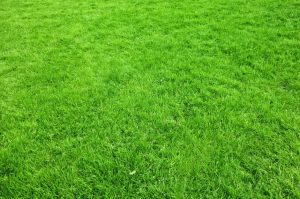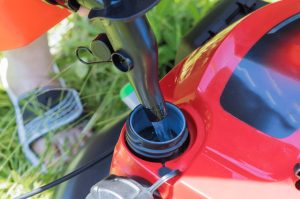In South Australia, the simple act of mowing your lawn comes with guidelines established to foster harmony and consideration among neighbours. Adhering to these rules helps avoid potential disputes or fines, promoting a peaceful community environment.
In this guide, we’ve gathered essential information from reliable sources to help you understand the appropriate times to mow your lawn in SA, ensuring you can maintain your garden while being a considerate neighbour.
Time restrictions on lawn mowing in SA
The acceptable hours for lawn mowing are between 7 am and 7 pm on weekdays and Saturdays. We recommend mowing a bit later on Sundays and public holidays, around 9 am to 7 pm, to allow for a peaceful morning.
However, it is important to note that these regulations can shift depending on the local council in South Australia. You can refer to the Local Government Association of SA’s factsheet for detailed information on these regulations. It’s always best to check with your local council for specific regulations in your area.
If you’re not from South Australia, the times may vary depending on your State or Territory. Check out our lawn mowing time guides for New South Wales, Western Australia and Queensland for more State-specific information.
Community perspectives on lawn mowing times
To foster a respectful and considerate community, adhering to certain norms and etiquette surrounding lawn mowing times in South Australia is vital. The community generally appreciates individuals who avoid mowing their lawns during the early morning or late evening hours, especially on weekends and public holidays.
To maintain good relations with your neighbours, consider the following tips:
- Notify your neighbours if you plan to mow your lawn outside the generally accepted hours.
- Schedule your lawn mowing when it is least likely to disturb others.
- Keep your lawn mowing equipment well-maintained to reduce noise levels.
By following these simple etiquettes, you can contribute to building a community where everyone can enjoy their home environment without unnecessary disturbances.
Local nuisance and noise restrictions in SA
In South Australia, a local nuisance is generally defined as any adverse effect on an area’s amenity value, including noise pollution.
When it comes to lawn mowing, it’s considered a nuisance if it causes unreasonable interference with the enjoyment of another person’s property. The guidelines are in place to ensure that activities like lawn mowing do not disrupt the peace and tranquillity of the neighbourhood, fostering a respectful and harmonious community.
Impact of noise on community well-being
Noise pollution, including that from lawn mowing at inappropriate hours, can have a significant adverse impact on the community’s well-being. It can lead to stress, sleep disturbances, and even affect one’s cardiovascular health.
Adhering to noise restrictions is not just a legal requirement but a civic responsibility to ensure our neighbours’ mental and physical well-being. It promotes a peaceful coexistence where everyone can enjoy their home environment without undue disturbances.
Local Nuisance & Litter Control Act 2016
The Local Nuisance and Litter Control Act 2016 is pivotal in managing local nuisances in South Australia. This legislation empowers local councils to take necessary actions to prevent and manage nuisances, including noise pollution from lawn mowing.
It aims to foster a community where individuals are considerate of their neighbours, ensuring activities like lawn mowing do not become a source of conflict or disturbance. Being aware of and complying with this act is a step towards building a respectful and harmonious community.
Types of noise and restrictions
Noise nuisances can originate from various sources, including:
- Construction or demolition works: Limited to 7 am to 7 pm from Monday to Saturday.
- Fixed machine noise: Air conditioning and pool pumps are allowed between 7 am to 8 pm from Monday to Saturday and 9 am to 8 pm on Sundays.
- Domestic premises noise: Including noise from power tools, mowers, and leaf blowers, permitted between 7 am to 7 pm from Monday to Saturday and 9 am to 7 pm on Sundays.
- Street and vegetation maintenance: Limited to 7 am to 7 pm from Monday to Saturday and 9 am to 7 pm on Sundays and public holidays.
It’s important to note that not all noises are considered nuisances under the law. For instance, noises from vehicles, animals in their natural habitat, sporting activities at venues, and noises associated with schools or places of worship are generally exempted.
Tools and equipment covered by noise restrictions in SA
In South Australia, noise restrictions cover various tools and equipment, particularly those used in garden maintenance and home improvement projects. Here are some of the tools and their average noise levels:
- Electric power tools: Including circular saws, electric drills, and cutters.
- Powered garden tools: Such as lawn mowers (emitting around 75-94 decibels), trimmers, leaf blowers, garden mulchers, chippers, shredders, hedge cutters, and chainsaws.
- Pneumatic tools: Including air and gas compressors.
- Pumps: Such as swimming pool and spa pumps.
These restrictions are in place to prevent noise nuisances, especially during early mornings or late evenings when people are most likely to be at home relaxing. Violating these restrictions can result in complaints and fines from the local council.
Decibel levels of different lawn mowers
Mowing your lawn is a routine task, but have you ever stopped to consider the noise levels produced by different lawn mowers? Let’s delve into the specifics:
- Petrol engine mowers: These tend to be the louder option, producing about 85 decibels (dB) of noise during use. To put it in perspective, this is significantly louder than a normal conversation, about 60 dB.
- Electric motor mowers: A slightly quieter option, these emit around 75 dB of noise, which is still more than twice as loud as a normal conversation.
To further understand, it’s essential to note that the decibel scale is logarithmic, meaning a 10 dB increase sounds twice as loud as the previous level. Therefore, electric mowers sound more than twice as loud as a conversation, and petrol mowers even more.
Comparing these levels to other common sounds:
- Normal conversation: 60 dB
- Vacuum cleaner: 70 dB
- Live music concert: 100-120 dB
Awareness of these noise levels can help you choose the right mower that aligns with your community’s noise restrictions and maintains a peaceful neighbourhood ambience.
Applying for exemptions in SA
In South Australia, if you intend to undertake activities that might cause a local nuisance, applying for exemptions is possible.
Submit your application to the council via the online application form, ensuring to include all the necessary details as required by the regulation.
Time frames:
- For activities predicted to last less than 24 hours, submit the application at least two weeks before commencing the activity.
- For activities expected to extend beyond 24 hours, the application should be made at least four weeks in advance.
- In extreme weather conditions, a shorter five calendar days is acceptable.
You must consult with the residents or businesses in your local community as part of the application process. Inform them in writing about your intended works, the possible dates and times, and the potential effects. A consultation template is available to assist you in this process.
By following this procedure, you can ensure compliance with the local regulations while carrying out your activities.
Reporting a nuisance
When you encounter a local nuisance, it’s possible to report it to the local council for appropriate action.
Here’s the procedure we recommend:
- Identify the nuisance: Understand the type of nuisance you are experiencing. It could be noise from construction works, domestic premises, street maintenance, or fixed machine noise. Note that not all noises are considered nuisances under the law.
- Attempt resolution: Before reporting, try to resolve the issue by conversing with the concerned party.
- Report to the council: If unsuccessful in resolving the issue amicably, you can report the nuisance to the local council.
- Police intervention: For nuisances related to people noise, including noisy parties or loud music, direct your concerns to the SA Police.
By following this procedure, you can contribute to maintaining a peaceful and harmonious community environment.
Expert insights on the best time to mow your lawn in SA
Mowing your lawn is not just about adhering to time restrictions set by the local councils; it’s also about choosing the optimal time for the health of your lawn.
We recommend mowing your lawn in the morning or the afternoon to avoid the intense heat and harmful UV rays.
- Morning or afternoon: These are the best times to mow your lawn to prevent damage from the intensive heat and UV rays. The exact time can depend on your personal preference. Still, it should ideally be between the permissible hours listed by the local authorities.
- Avoid wet lawns: If your lawn is wet, it’s best to wait until it has dried before mowing to prevent any grass damage and ensure an even cut.
Remember, maintaining a regular mowing schedule keeps your lawn looking great and provides significant benefits to the health of your lawn.
Equipment and techniques for quieter lawn mowing
Considering quieter lawn mowing techniques and equipment can be significant to maintaining a peaceful neighbourhood ambience. Here are some tips and insights:
- Electric motor mowers: These are generally quieter than petrol engine mowers, emitting around 75 decibels (dB) of noise compared to 85 dB produced by petrol engine mowers.
- Proper maintenance: Regular mowing equipment maintenance can also help reduce noise. Ensure the mower’s blades are sharp and the engine is well-maintained to operate at optimal noise levels.
- Use of battery-operated tools: These tools are generally quieter compared to their electric or petrol counterparts. Consider using battery-operated mowers, trimmers, and leaf blowers to reduce noise pollution.
- Awareness of noise levels: Awareness of the noise levels produced by different equipment can help you make informed decisions. For instance, a normal conversation is about 60 dB, and understanding that the decibel scale is logarithmic can help you gauge the noise level better.
By adopting these techniques and equipment, you can reduce noise pollution in your community, fostering good relations with your neighbours while caring for your lawn.
Conclusion
As we navigate the nuances of maintaining our lawns in South Australia, it becomes evident that responsible lawn mowing is not just a courtesy but a necessity. From understanding the local nuisances and noise restrictions to being aware of the specific time frames for lawn mowing, every aspect plays a vital role in fostering a harmonious community.
Here are some best practices to remember:
- Adhere to time restrictions: Mow your lawn between 7:00 am to 7:00 pm from Monday to Saturday and 9:00 am to 7:00 pm on Sundays and public holidays.
- Choose the right equipment: Opt for quieter lawn mowers, such as electric motor mowers, and maintain them well to reduce noise levels.
- Consider the community: Before embarking on any lawn mowing or maintenance activity, consider the potential impact on your neighbours and the community.
- Know the law: Be aware of the Local Nuisance & Litter Control Act 2016 and the guidelines set by the local councils to manage nuisances effectively.
- Seek exemptions when necessary: If your activities might cause a nuisance, apply for exemptions in advance, adhering to the stipulated time frames and consultation requirements.
- Report nuisances: If you encounter a nuisance, know how to report it to the local council to maintain a peaceful community environment.
As we wrap up, we encourage every South Australian to adhere to these guidelines diligently. By promoting responsible lawn mowing, not only do we ensure the well-being of our community, but we also contribute to the overall health of our lawns. Let’s work together to create a peaceful and green South Australia where the hum of a mower signifies respect and consideration, not a disturbance.






